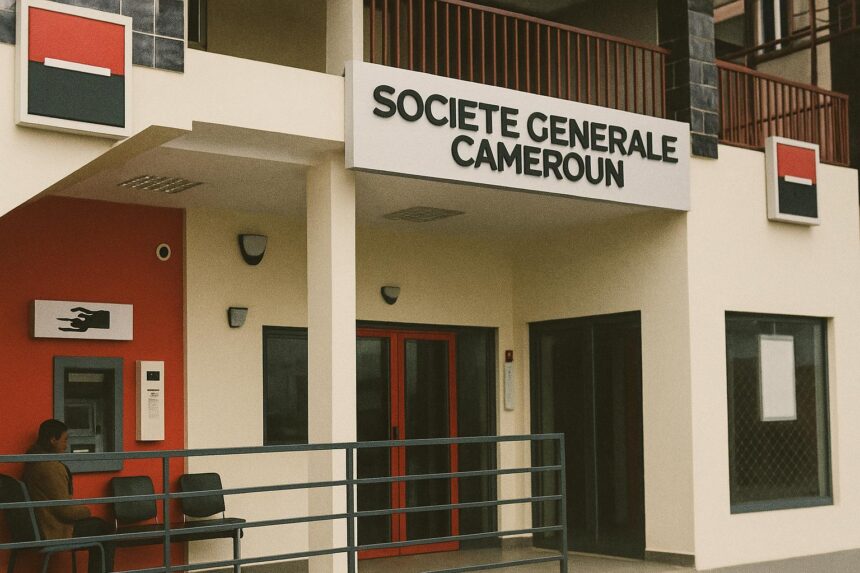State divestment rewrites Cameroon’s banking script
The 15 July 2025 communiqué by Cameroon’s Minister of Finance, Louis Paul Motaze, was as succinct as it was historic. With 83.68 percent of Société Générale Cameroon now in public hands after an amicable arrangement with the Paris-based parent, Yaoundé has offered domestic and foreign partners a rare opportunity to anchor themselves in the sub-region’s second-largest economy. The invitation, couched in the language of ‘broadening capital to credible financial partners’, instantly stirred competitive diplomacy among the continent’s most ambitious lenders.
- State divestment rewrites Cameroon’s banking script
- BGFIBank’s Brazzaville precedent offers quiet reassurance
- NSIA’s insurance-banking fusion targets fresh latitude
- Zenith Bank brings Lagos–London capital to Yaoundé
- Fiscal strategy and the politics of valued continuity
- Regional integration gains and next steps
The transaction, valued by analysts at just under 140 billion CFA francs, arrives at an inflection point. Cameroon seeks to streamline its portfolio while complying with Central African Banking Commission prudential ratios. At the same time, Paris continues a strategic retreat from retail franchises in sub-Saharan Africa, preferring wholesale services and advisory work. The result is a vacuum that regional champions are eager to fill.
BGFIBank’s Brazzaville precedent offers quiet reassurance
Leading the pack is Libreville-headquartered BGFIBank Group, whose footprint extends across eleven African jurisdictions and France. Chairman Henri-Claude Oyima signalled as early as May 2024 that ‘all opportunities linked to Société Générale command our interest’ (BGFI Group press statement, 31 May 2024). His words were validated months later when BGFI, in concert with the Republic of Congo, assumed control of Société Générale Congo. That earlier deal, praised in Brazzaville for protecting local employment and liquidity, bolstered regulatory trust in BGFI’s ability to integrate legacy French systems without operational fracture.
Officials in both Libreville and Brazzaville privately note that the Congolese precedent could reassure Yaoundé’s policymakers who remain vigilant about systemic stability. Moreover, BGFI’s cross-listing of its holding company has equipped it with transparency tools capable of satisfying European compliance benchmarks, a point discreetly welcomed by Parisian advisers familiar with the dossier.
NSIA’s insurance-banking fusion targets fresh latitude
Jean Kacou Diagou’s NSIA Group, headquartered in Abidjan, has long viewed bancassurance as a lever for scale. After acquiring stakes in banks across Côte d’Ivoire, Guinea and Benin, NSIA now interprets Central Africa as the missing piece of its continental mosaic. Diplomatic sources in Yaoundé confirm that Diagou paid a working visit in mid-June to outline his ‘regional equity partnership’ vision directly to Minister Motaze (private aide-memoire, 18 June 2025).
NSIA’s proposition rests on two pillars: first, deploying its actuarial capacity to deepen retail savings in Cameroon’s largely informal economy; second, leveraging the Central African Economic and Monetary Community’s cross-border payment platform to sell multi-risk policies in neighboring Chad and Gabon. By embedding itself in Société Générale Cameroun’s 40-branch network, NSIA would shorten what analysts call its ‘distribution learning curve’. Still, observers caution that converting an insurance-centric culture into universal banking proficiency requires patient capital and regulatory leniency.
Zenith Bank brings Lagos–London capital to Yaoundé
Nigeria’s Zenith Bank, trading on both the Nigerian Exchange and the London Stock Exchange, enters the race with the advantage of deep capital markets access. Its 2024 rights issue raised 500 million USD, a war chest earmarked for ‘strategic regional expansion’ (Zenith Board circular, 7 February 2025). Executive Director Adaora Umeoji recently underscored the bank’s objective to ‘export Nigeria’s fintech efficiency across the sub-region’ during a policy round-table in Abuja.
Zenith’s digital forte dovetails neatly with Cameroon’s youthful demography, where mobile penetration stands above 80 percent. However, translating fintech speed into regulatory compliance within BEAC’s conservative framework may require calibrated dialogue. To that end, Zenith’s Abuja headquarters has dispatched a technical team to study data-hosting requirements particular to the Central African context, demonstrating a preference for meticulous groundwork over headline-grabbing pledges.
Fiscal strategy and the politics of valued continuity
For the Cameroonian Treasury, relinquishing majority control of Société Générale Cameroon is as much a fiscal manoeuvre as a political one. The proceeds, earmarked for infrastructure and debt-service smoothing, align with the International Monetary Fund’s advice to widen the tax base without over-extending sovereign borrowing ceilings. Crucially, the process is framed as a competitive yet collegial consultation, insulating the administration from accusations of favouritism.
Yaoundé’s stance appears informed by the congenial working relationship between President Denis Sassou Nguesso’s government and BGFI during the 2023 Congolese transaction. Diplomats in Brazzaville note that transparent communication channels and shared developmental metrics reduced social anxieties traditionally associated with bank acquisitions. Cameroonian negotiators, mindful of similar sensitivities, have therefore insisted on post-transaction monitoring committees to safeguard employment and credit lines for small and medium-sized enterprises.
Regional integration gains and next steps
Beyond the immediate headline of corporate interest, the bidding drama elucidates a broader continental dynamic: regional champions are increasingly assuming roles once monopolised by European giants. While Société Générale retains wholesale ambitions, its calibrated disengagement allows African capital to cement cross-border ecosystems, ultimately deepening the continent’s financial sovereignty.
Market insiders anticipate a decision before the final quarter of 2025. Regardless of the winner, analysts forecast intensified digital innovation, a probable surge in Franc-CFA syndicated lending and renewed scrutiny on governance standards. For Central Africa’s policy community, the episode serves as a pragmatic reminder that calibrated liberalisation—when coupled with institutional vigilance—can attract capital without eroding sovereign prerogatives.





















